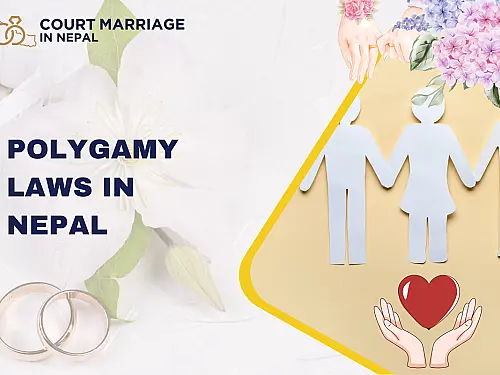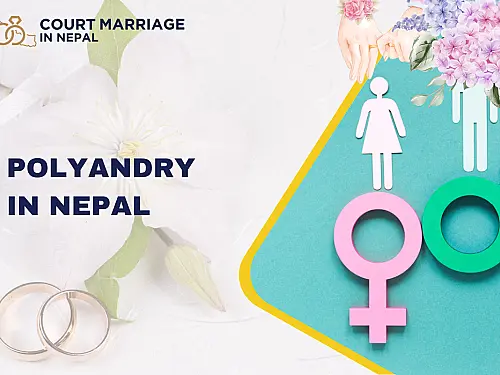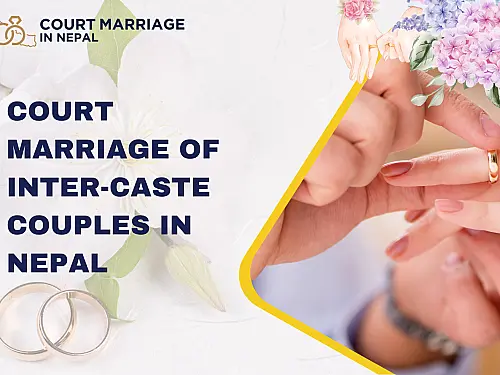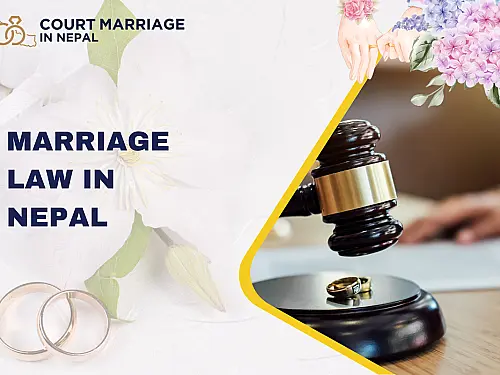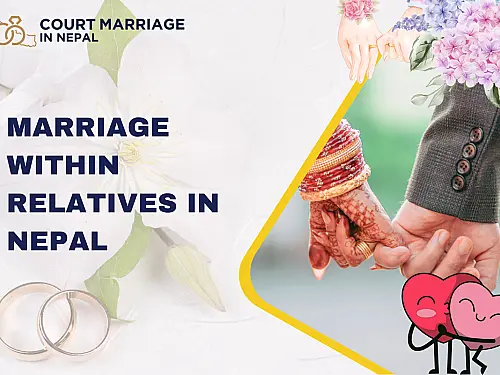Table of Contents
In recent times, the importance and acknowledgment of female marriage lawyers in Nepal have grown substantially. These women, as experts in marriage-related legal services, are overcoming traditional obstacles in a male-dominated field. Their efforts encompass court marriages, inter-caste partnerships, domestic violence situations, dowry conflicts, and legal separations, offering essential legal support with compassion and insight. What distinguishes female marriage lawyers is not just their legal knowledge but also their friendly and empathetic demeanor, which is crucial in delicate family issues. They are vital in strengthening women, securing gender equality, and advocating for rights-based approaches in the legal framework. In a nation such as Nepal where marriage is influenced by intricate overlaps of tradition, religion, caste, and gender expectations female lawyers act as legal representatives and catalysts for social change. Their increasing presence represents not only progress for gender inclusion in the legal arena, but also a significant driver of justice, equality, and dignity within the institution of marriage.
Introduction
Nepal's judicial framework, particularly regarding family and marriage issues, is evolving. In recent years, a significant change has occurred in the way these legal services are delivered. In the past, this area was frequently dominated by men and often lacked sensitivity to the emotional and social intricacies related to marriage, divorce, or family matters. A significant factor contributing to this favorable change is the presence of female divorce lawyers. These women are accomplished legal experts who are introducing new viewpoints to the profession. Their presence is crucial not only as a symbol of gender equality in the legal field, but also because they contribute emotional intelligence, empathy, and client-focused support to the legal process. Women marriage lawyers are working to create a more inclusive and accessible legal experience, particularly for female clients. Women dealing with family conflicts frequently prefer to discuss their issues with female lawyers. This enhances the effectiveness of legal assistance and its responsiveness to the actual challenges individual’s encounter. Women lawyers are transforming marriage related legal services in Nepal they symbolize progress in gender equality and are also contributing to a more empathetic and just legal system for all.
Role of a Marriage Lawyer in Nepal
Marriage lawyers in Nepal are essential in making sure that the legal aspects of a marriage are appropriately handled and safeguarded. Their role extends past merely completing forms or representing clients in court, they assist individuals and couples in navigating all essential legal procedures to ensure a marriage is recognized legally. They help with the registration of court marriages, which entails legally marrying via the District Court, frequently preferred by couples who may not desire to wed through religious or traditional rituals. They assist with municipal marriage registration at the ward level, which is crucial for obtaining an official marriage certificate for individuals married through tradition or ritual. In instances of inter-caste or inter-religious unions, which may still encounter social and legal challenges in Nepal, marriage lawyers work to safeguard the couple's rights and ensure that the procedure adheres to legal requirements. They also manage document preparation, ensure all witness requirements are fulfilled, and confirm that no procedural errors hinder the registration.
In addition to registration, marriage lawyers assist with citizenship and immigration concerns that come up post-marriage such as when a foreign spouse applies for legal residency or a Nepali citizenship certificate. They also inform couples about their legal obligations and rights in marriage, covering topics such as property rights, alimony, and inheritance. Significantly, numerous divorce lawyers additionally provide counseling and mediation services to settle conflicts prior to them escalating into court proceedings. This fosters harmony and comprehension, lowering both the emotional and financial burdens of conflict.
The services offered by marriage lawyers guarantee that marriages in Nepal are not just culturally or socially acceptable, but also legally valid and safeguarded, providing security and understanding to both spouses.
Preference to Female Lawyer
Clients frequently view female lawyers as more accessible, particularly in cases dealing with emotional or culturally delicate matters. This is especially accurate in Nepalese culture, where gender expectations can hinder women from openly discussing personal issues, particularly those associated with marriage or home life. When clients particularly women face emotional distress, trauma, or confusion, they might be reluctant to share, especially with male lawyers present. Discussing personal matters such as marital disputes, abuse, or relationship breakdowns can be awkward, and numerous clients feel more secure and better understood with a female lawyer. This reassurance is particularly crucial in situations of domestic violence, forced marriage, or sexual exploitation, where the victim may worry about being judged, blamed, or misinterpreted. Women lawyers typically have an advantage in establishing trust and providing comfort, facilitating clients in openly sharing their experiences crucial for developing a robust legal case. Emotional intelligence plays a vital role in mediation and reconciliation processes. Women lawyers receive commendations for their compassionate listening, caring communication, and calm management of stressful scenarios.
These traits assist in resolving conflicts, promoting collaboration, and achieving equitable, peaceful solutions without leading to prolonged legal disputes. The empathy, communication abilities, and emotional insight that women lawyers possess can be vital in family law matters, where legal challenges are deeply connected to personal feelings and societal expectations. Their involvement renders the legal process more compassionate, respectful, and helpful for clients in delicate circumstances.
Legal Expertise with Human Understanding
Numerous female marriage lawyers in Nepal are experienced professionals who contribute far more than just courtroom expertise to their work. Although they are educated in litigation representing clients in court, they also possess solid experience in alternative dispute resolution (ADR) techniques like mediation and negotiation. These methods are particularly advantageous in family and marital situations were maintaining relationships or achieving mutual accords can be more advantageous than legal disputes.
Besides ADR, they have expertise in legal documentation, such as creating marriage contracts, affidavits, separation agreements, and custody plans. These responsibilities demand accuracy and a thorough comprehension of both the legal framework and the individual situations of the clients. Women lawyers frequently thrive in this domain as they invest time to grasp the emotional and cultural backgrounds related to each legal matter. What distinguishes many of these lawyers is their comprehensive approach. They don’t analyze a case solely from a legal perspective they also take into account social norms, family dynamics, gender roles, and the emotional health of their clients. A woman looking for assistance with a court marriage may also encounter familial pressure or concern about societal repercussions. Female lawyers frequently foresee these concerns and provide advice that honors both the client's legal entitlements and their emotional requirements.
In serious situations such as bigamy (marrying someone while still legally wed to another), dowry conflicts, or abandonment, these lawyers demonstrate their power by merging their technical legal expertise with empathy and practical insight. They advocate for justice in court and also assist their clients during what are frequently life changing and traumatic times. Essentially, women marriage lawyers in Nepal provide a comprehensive, empathetic, and rights focused service that positions them as reliable advocates in both legal and personal conflicts.
Court Marriage and the Role of Female Lawyers
The process of court marriage in Nepal is an official legal procedure that adheres to particular laws and administrative necessities. It's more than just two individuals consenting to wed it requires a legal framework that guarantees the marriage is recognized by law. Couples are required to meet specific criteria, provide necessary paperwork, and attend court with witnesses. Here is where women marriage lawyers are essential. Initially, they help by creating precise and thorough documentation such as citizenship certificates, birth registrations, relationship verifications, unmarried declarations, and various legal documents. Mistakes or absent paperwork can postpone or nullify the procedure thus a lawyer's assistance guarantees everything is properly arranged. They likewise clarify the legal rights and duties of each partner, essential for informed consent.
In Nepal, aspects such as property ownership, upkeep, and marital responsibilities are legally specified, and a competent lawyer ensures that both individuals comprehend the legal obligations they must meet. Women lawyers excel at helping clients navigate bureaucratic obstacles whether interacting with court officials, notaries, or municipal offices. This may be daunting or unclear for numerous individuals, particularly women or those from rural or disadvantaged communities. A supportive lawyer can ease the process and reduce stress. A crucial aspect of their position is to guarantee that gender equality and mutual consent are honored during the entire process. This is crucial in a community where coerced unions or familial pressure may still take place. Female lawyers frequently exhibit greater sensitivity to these matters and ensure that both parties are entering the marriage voluntarily and on equal grounds.
Changing the Legal Culture
The increasing number of female lawyers in marriage-related legal work is not only enhancing gender diversity but also actively confronting entrenched patriarchal norms that have influenced the legal system and the wider Nepali society. For an extended period, legal institutions were controlled by men, and numerous legal procedures, particularly those concerning marriage and family, frequently mirrored male-centered viewpoints. Women lawyers are contributing to changing this culture by implementing strategies that are more inclusive, compassionate, and centered on rights.
By entering and thriving in this field, female at lawyers challenge conventional beliefs such as the notion that leadership in legal issues is exclusive to men, or that women ought to steer clear of handling delicate, high-pressure matters like divorce, domestic violence, or spousal rights. Their presence provides women clients with someone relatable while also encouraging the system to be more accountable and sensitive to gender issues. Additionally, these women act as inspirations for the upcoming generation of aspiring female legal experts. Their presence conveys a strong message: that women not only have a place in law but can excel, focus, and advocate successfully in even the most traditionally male-centric fields. This contributes to creating a more equitable and representative legal field, allowing perspectives from all genders to influence legal interpretation, policy, and practice. Essentially, the role of female marriage lawyers extends beyond specific cases it serves as a driver for cultural and institutional transformation, fostering a legal landscape that is more just, inclusive, and respectful of gender diversity.
Empowering Clients, Especially Women
In Nepal, female marriage lawyers serve an empowering function, particularly for women clients who might not be entirely aware of their legal entitlements or may feel daunted by the legal framework. In contrast to lawyers who merely offer technical or transactional support (such as submitting documents), these experts frequently adopt a more comprehensive and advocacy-oriented perspective. They assist in informing women about their legal entitlements such as the entitlement to property within marriage, the right to pursue alimony or child custody, and the right to live without violence and coercion. This understanding alone can transform the lives of many women, especially those from traditional or rural environments who have lacked access to legal education.
In addition to offering legal guidance, women lawyers frequently motivate and assist other women in taking action whether it's pursuing a case for domestic violence, seeking an equitable divorce settlement, or claiming custody of children. Their empathetic attitude and lack of judgment facilitate a woman's willingness to discuss challenging or traumatic events. Due to their compassionate communication approach and awareness of gender issues, more women now feel assured in seeking help from the legal system. Women lawyers foster an environment where clients feel heard and cared for not only in legal matters but also in emotional and social aspects. In summary, these lawyers not only address legal issues they enable women to advocate for their rights, pursue justice, and take control of their own lives. Their efforts have created a ripple effect in society, progressively motivating more women to utilize the legal system as a means of protection and empowerment.
Conclusion
The role of female marriage lawyers in Nepal goes beyond handling legal documents or representing clients in court; it also brings about considerable social change. These experts are not just lawyers, they additionally act as advocates, advisors, and agents of social change. They assist clients through some of life's most delicate moments while also confronting the entrenched cultural and structural obstacles that have traditionally restricted women's rights and their access to justice.
In Nepal, marriage transcends legal aspects and is profoundly connected to tradition, caste, religion, and gender norms. For instance, problems such as inter-caste marriage, dowry, bigamy, or forced marriage are not only legal breaches; they also serve as cultural flashpoints. Women marriage lawyers operate at this intricate junction, assisting clients in maneuvering through the legal structures and the societal influences that accompany them. Their perspective is especially crucial as they contribute personal experiences and gender awareness to a legal domain that has frequently been deficient in both. They promote fairness, mutual agreement, and respect in marriage not only legally, but as part of a larger vision for gender equality and social justice. With Nepal's ongoing modernization and reform of its legal system, women lawyers are increasingly vital in making sure that the law addresses actual needs. Their increasing influence contributes to ensuring that marriages are not just legally acknowledged, but also just, secure, and equitable for everyone involved. Essentially, female marriage lawyers are connecting law and society, and as Nepal progresses, their role will be increasingly crucial in fostering a fair and inclusive legal culture.
Frequently Asked Questions
At Court Marriage In Nepal, a registered law firm operating as Court Marriage In Nepal Pvt. Ltd., we specialize exclusively in Court Marriage Nepal. As the first law firm in Nepal dedicated to court marriage services, we assist both Nepali citizens and foreign nationals with the court marriage registration process in Nepal, including complete legal support for court marriage registration for foreign citizens in Nepal. As a trusted marriage firm in Nepal and a licensed law firm in Nepal, we ensure a smooth, lawful, and stress-free experience. Contact us today for confidential assistance with court marriage registration in Nepal.


